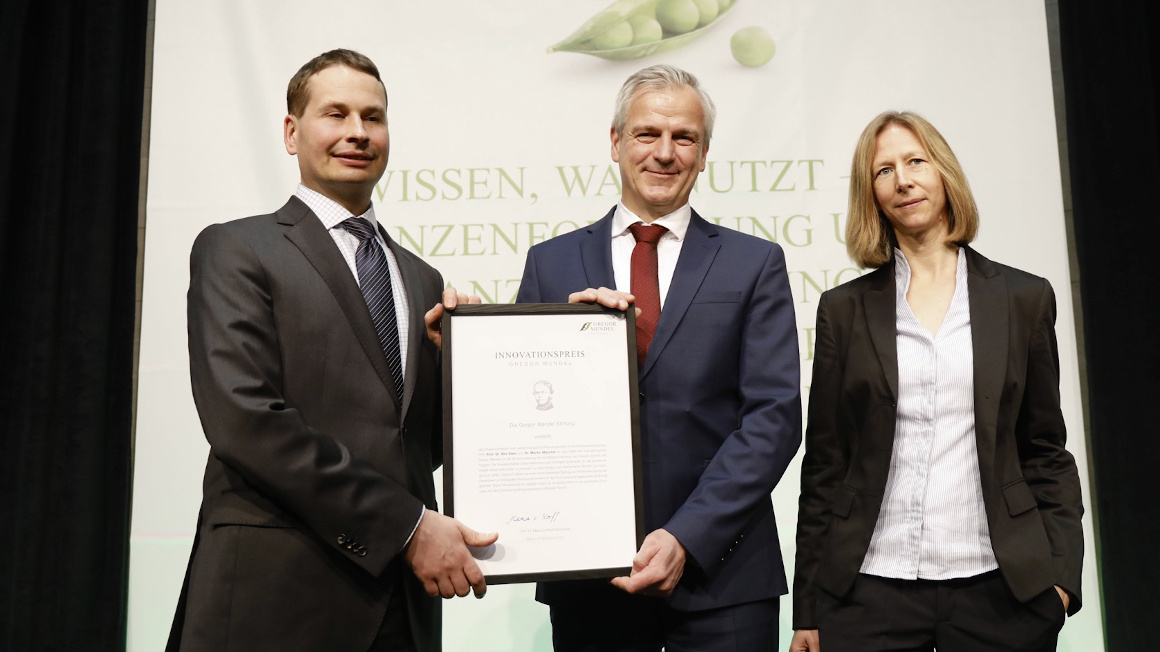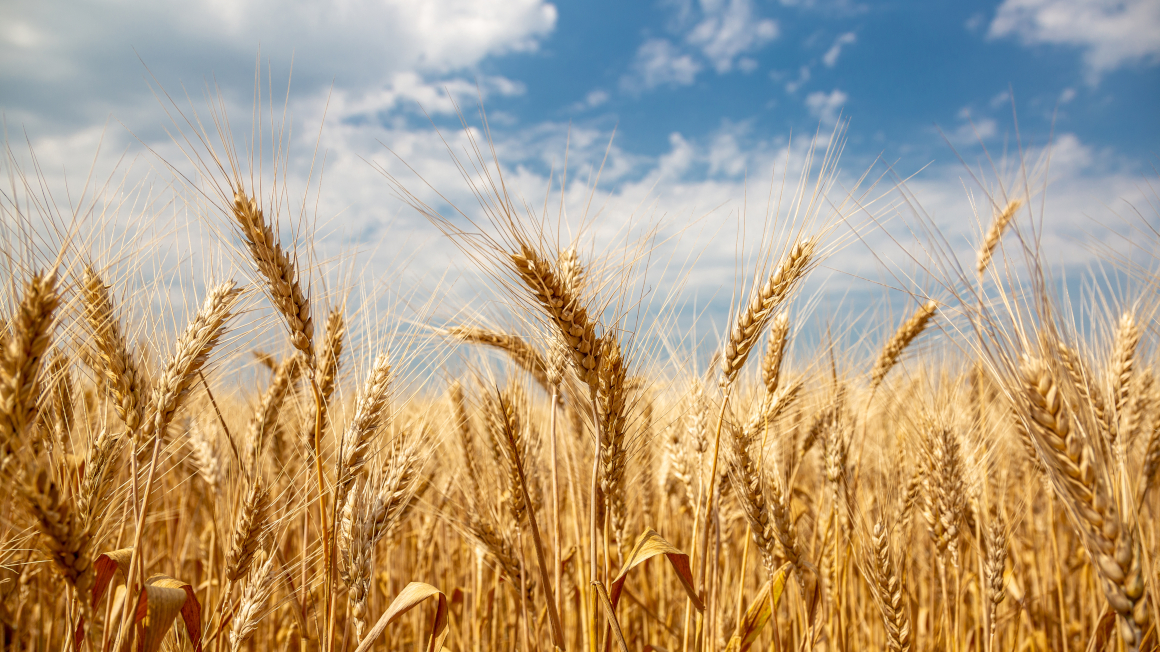Leibniz scientists honored for cereal genome research
The Gregor Mendel Foundation has awarded the Innovation Prize to researchers Nils Stein and Martin Mascher from the Leibniz Institute of Plant Genetics and Crop Plant Research (IPK) in Gatersleben for their contributions to decoding the complex genomes of wheat, barley and rye.

With his theory of heredity, Gregor Johann Mendel laid the foundation for modern genetics. In 1866, in what he called Mendel's Rules, the scientist described for the first time how certain characteristics are transmitted from a mother plant to its offspring. This knowledge continues to shape plant breeding to this day. In honor of the father of genetic engineering, the Gregor Mendel Foundation was established in 2002 with the aim of raising awareness of the social importance of plant research and breeding as well as promoting innovation and breeding progress in science, industry and society.
Contribution to research and breeding
On the occasion of a ceremony marking the 200th anniversary of Mendel's birth, the foundation awarded Nils Stein and Martin Mascher from the Institute of Plant Genetics and Crop Plant Research (IPK) the Gregor Mendel Innovation Prize for their pioneering research in the field of genome research in Berlin on November 17, 2022. With their contributions to decoding the complex genomes of wheat, barley and rye, the researchers have developed methods and strategies for recording and describing the genetic diversity of these crop species and making it available to interested users," said the Gregor Mendel Foundation.
"This is an important contribution to research and practical breeding. Their work has great potential to accelerate the development, approval, promotion and use of, for example, climate-adapted varieties," said Marlehn Thieme, President of Deutsche Welthungerhilfe, in her laudation. "The accessibility, availability and affordability of approved, improved varieties that are tolerant and deliver acceptable yields even under 'low-input conditions' and difficult environmental conditions, and are rich in micronutrients such as zinc and iron, can have lasting impact," Thieme added.
BMBF funding with foresight
"This award is a great honor for us and an incentive to continue our joint work," says Martin Mascher, referring to the enormous technological advances, for example in high-throughput sequencing. "Today, we can tackle research questions that would have been unthinkable to answer 20 or even 5 years ago." At the same time, the IPK scientists praised the years of funding for cereal genome research by the German Federal Ministry of Education and Research (BMBF). The BMBF recognized back at the beginning of the millennium that genomics created an important data basis for innovations, they said. "And today I am pleased that cereal genome research is perceived as an important contribution to plant breeding," Nils Stein said.
Protein and forage crops in the focus of future genome research
Nils Stein was part of the team that decoded the giant genome of wheat in 2018 after 13 years of research. Next, IPK researchers plan to focus on global landraces and related wild species of cultivated cereals in the genomic characterization of the cereal assortment. "In the future, other crop species such as protein and forage crops will also be the subject of our genomic research. We are convinced that the digitization of gene banks, and in particular digital sequence information, can multiply the value of crop diversity preserved in gene banks," Stein said.
bb


